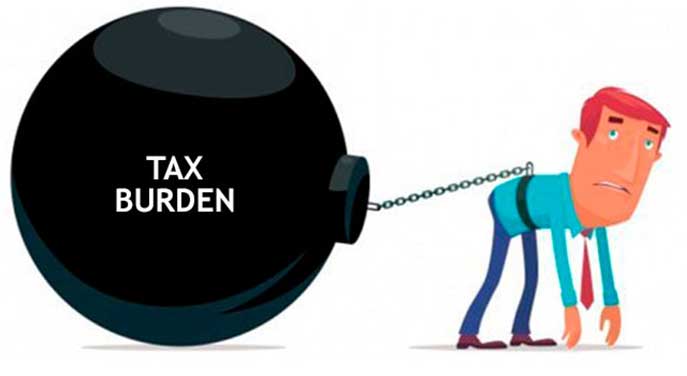 Nova Scotia Premier Tim Houston got a big hit for taxpayers by putting a stop to a pay hike for MLAs and cutting his own salary. Now Houston has an opportunity to convert his single into a home run by ending the automatic tax hikes associated with bracket creep.
Nova Scotia Premier Tim Houston got a big hit for taxpayers by putting a stop to a pay hike for MLAs and cutting his own salary. Now Houston has an opportunity to convert his single into a home run by ending the automatic tax hikes associated with bracket creep.
Last month, an independent panel created by the Legislative Assembly made a binding recommendation that would have seen MLA pay jump from $89,235 to $100,481. Had Houston not put a stop to it, all 55 of the province’s MLAs would have joined the sunshine list, an exclusive list of Nova Scotians on the public payroll making more than $100,000 a year.
Immediately after the report was released recommending hiking MLA pay by more than $11,000 a year, retroactive to last September, Houston announced his plan to recall the legislature for a special summer session to put an end to the MLA pay increase. Ultimately, all parties supported Houston’s move to stop politician pay increases.
In announcing his decision to recall the legislature, Houston laid out exactly why now is the worst time to give politicians a pay raise.
“When inflation is at a 40-year high, gas prices are at historic levels and many hard-working Nova Scotians are struggling to make ends meet, it is not the time to increase the pay of MLAs,” said Houston.
Houston also announced that he would take a pay cut, with the salary top-up for the premier dropping by more than $11,000.
By stopping the MLA pay hike and reducing his own salary, Houston is demonstrating solidarity with taxpayers in their time of need. But this year’s soaring inflation numbers will amount to a massive tax hike for every Nova Scotia taxpayer because the province fails to adjust its income tax thresholds with inflation. Houston needs to do something about it.
When Canadian taxpayers in every province other than Nova Scotia, PEI and Alberta get a cost-of-living pay raise, they also see their tax brackets adjusted to try to ensure that they aren’t penalized simply for keeping up with higher living costs.
With inflation at nearly 10 per cent, next year’s tax bracket thresholds in seven of 10 provinces and at the federal level will increase significantly.
Nova Scotians don’t have that benefit. They get pushed into higher tax brackets every year.
Nova Scotia’s present income tax system was designed in 2000. Taxpayers have been forced to pay higher taxes every year since then because tax brackets aren’t automatically adjusted.
A Nova Scotia taxpayer who earned $35,000 in 2000 would have seen 6.4 per cent of their paycheque sent to provincial tax coffers. If that taxpayer only received cost-of-living pay raises between then and today, they would be earning roughly $47,000. But because of bracket creep, 8.6 per cent of that taxpayer’s income would now be taken by the provincial taxman.
In just 22 years, that taxpayer’s provincial tax burden would have increased by more than one-third, despite being no better off financially.
That’s the regressive nature of bracket creep. And it hits lower- and middle-income taxpayers the hardest. Worse still, bracket creep hurts the most when inflation is high.
Houston deserves a lot of credit for showing solidarity with taxpayers by putting a stop to MLA pay hikes and cutting his own salary. But for Houston to truly show he’s on the side of taxpayers, it’s time for him to hit a home run for Nova Scotia taxpayers and end bracket creep.
Jay Goldberg is the Ontario & Interim Atlantic Director for the Canadian Taxpayers Federation.
For interview requests, click here.
The opinions expressed by our columnists and contributors are theirs alone and do not inherently or expressly reflect the views of our publication.
© Troy Media
Troy Media is an editorial content provider to media outlets and its own hosted community news outlets across Canada.

